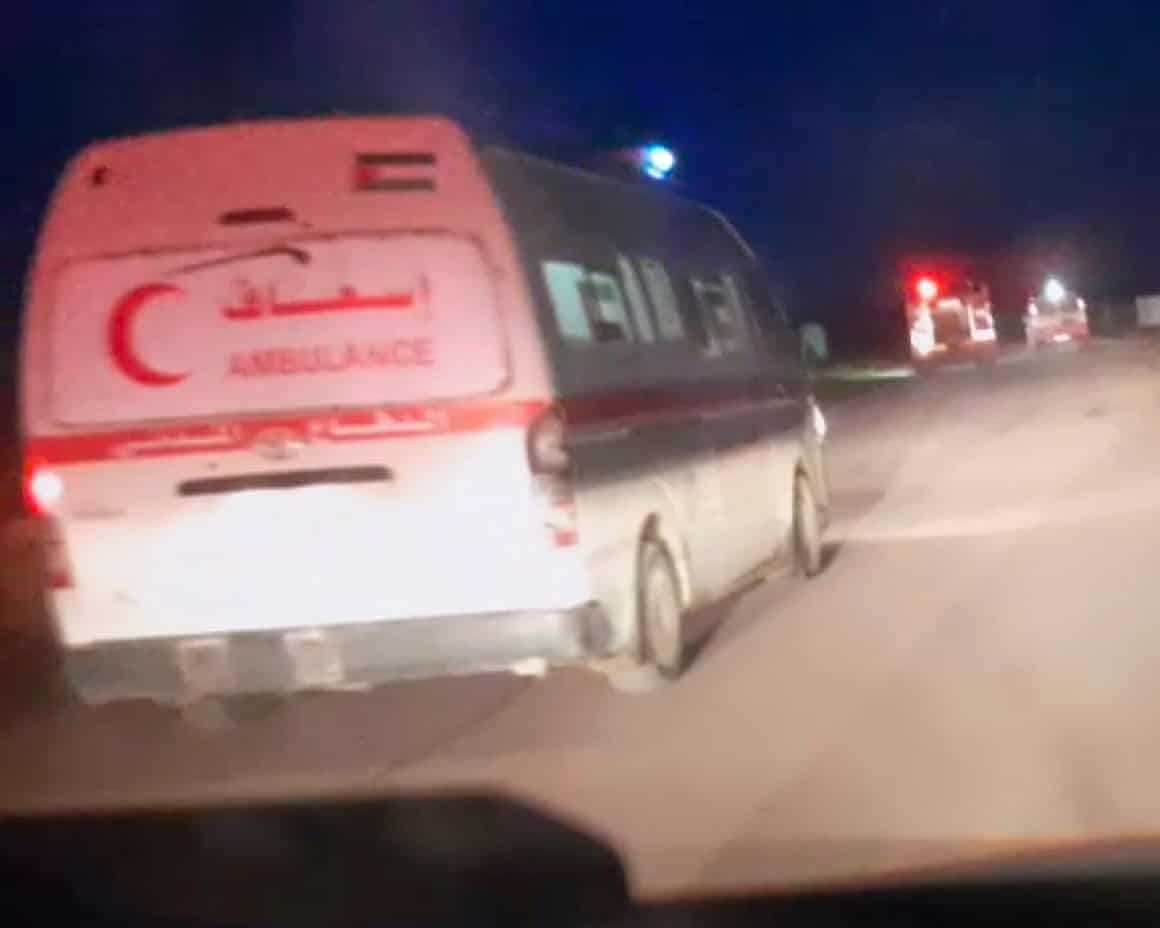| Support independent journalism |
| |
|
| 
|  | | | First Thing: Biden diagnosed with ‘aggressive’ prostate cancer, office says | | | The former president’s family is reviewing treatment options. Plus, 2024 saw record attacks on healthcare | |  |  Joe Biden on 15 April. Photograph: Nam Y Huh/AP
| | Jem Bartholomew
| | | Good morning. Joe Biden has been diagnosed with prostate cancer, which has spread to his bones, and the former president and his family are reviewing treatment options, his office said in a statement on Sunday. President Donald Trump and leaders across the world wished Biden, 82, a quick recovery. Meanwhile, in earlier weekend news, fallout continued amid the upcoming publication of Original Sin, the book by political reporters Jake Tapper and Alex Thompson. -
What are the details of Biden’s diagnosis? Prior to starting his presidency, Biden had several non-melanoma skin cancers surgically removed, and he had a cancerous lesion removed from his chest in February 2023. Sunday’s statement from Biden’s office said the former president’s diagnosis represented “a more aggressive form” of cancer, though it “appears to be hormone-sensitive, which allows for effective management”. -
What’s the life expectancy for prostate cancer? The five-year survival rate for men diagnosed under 65 is about 98%, compared with 85% for men over 80. If the cancer has metastasized to other parts of the body, the survival rate drops substantially, to 30-40% after five years.
UN human rights chief condemns Israeli actions as ‘tantamount to ethnic cleansing’ | | |  | | | | The Israeli army has announced the start of a large-scale offensive in Gaza, describing “extensive ground operations” to seize “operational control” of swaths of the devastated Palestinian territory as a second day of indirect ceasefire talks in Qatar ended without any breakthrough. The escalation in attacks was condemned by the UN human rights chief, Volker Türk, on Friday, who said the bombing campaign was meant to displace Palestinians and that it was equivalent to ethnic cleansing. “This latest barrage of bombs … and the denial of humanitarian assistance underline that there appears to be a push for a permanent demographic shift in Gaza that is in defiance of international law and is tantamount to ethnic cleansing,” he said. At least 23 people have been killed since dawn this morning in Israeli airstrikes on Gaza, according to Palestinian news agency Wafa. Hundreds of people have been killed in the last few days. Rescuers and medical sources say as many as 130 people, including many women and children, were killed in a wave of Israeli strikes on Saturday night into Sunday on neighborhoods in the north, centre and south of Gaza. -
What is the impact of Israel’s humanitarian aid blockade? Charities have warned of a looming famine across Gaza caused by Israel’s food blockade, which has seen all shipments of humanitarian aid, including food and medical supplies, from entering the territory since 2 March. The UN wrote on X: “Everyone in Gaza is hungry. Without immediate action, nearly a quarter of the population could be pushed into famine. Food aid must be allowed into Gaza now to prevent a catastrophe.” -
What has Israel said about the blockade? Prime minister Benjamin Netanyahu decided on Sunday to resume the entry of a “basic quantity” of food into Gaza, after coming under increasing international pressure to lift its devastating blockade of the territory, which has lasted for around 11 weeks.
Europe electoral ‘super Sunday’ sees battle between centrist and rightwing candidates | | |  |  Supporters of presidential candidate Nicușor Dan in Bucharest, Romania. Photograph: Andreea Alexandru/AP
| | | | Millions of voters in Romania, Poland and Portugal cast ballots in an electoral “super Sunday” yesterday. Here’s what we know so far: -
In Romania: The centrist Nicuşor Dan defeated his far-right rival and Donald Trump-admirer in the presidential election. -
In Poland: The pro-European centrist, Rafał Trzaskowski, and historian Karol Nawrocki, backed by the populist right, have each secured about 30% of the vote in a nail-bitingly close first round of Poland’s presidential election. -
In Portugal: The incumbent centre-right Democratic Alliance won a general election but fell short of a majority, as the underperforming socialists were left vying for second place with the far-right Chega party, which took a record 22% of the vote.
In other news … | | |  |  Residents inspect their home after a tornado tore off the back wall of a house in St Louis, Missouri, on Friday. Photograph: Lawrence Bryant/Reuters
| | | -
At least 28 people have died as storms and tornadoes struck Missouri, Kentucky and Virginia, with authorities saying the search for survivors continues. -
The Niassa reserve in Mozambique has been shaken by a series of attacks by Islamic State-linked extremists, which have left at least 10 people dead. -
Kevin Spacey is to accept a lifetime achievement award in Cannes next week, in what may constitute one of the most high-profile “uncancellings” of the post-#MeToo era.
Stat of the day: More than 3,600 attacks on health workers, hospitals and clinics in conflict zones in 2024 | | |  |  An image from a video released by the Palestinian Red Crescent Society, taken with a phone by one of 15 Palestinian medics killed by Israeli forces in Tel al-Sultan, Gaza, on 23 March 2025. Photograph: AP
| | | | Last year saw more than 3,600 attacks on health workers, hospitals and clinics in conflict zones, a record figure reflecting “new levels of horror”, a report from the Safeguarding Health in Conflict Coalition found. The total is 15% higher than in 2023, and includes Israeli attacks on health infrastructure and medics in Gaza. Don’t miss this: ‘I feel free’ – the people who quit office jobs for the great outdoors and never went back | | |  |  Steve Kell is now a park ranger, after giving up life as an assistant bank manager. Photograph: Fabio De Paola/The Guardian
| | | | Five people who ditched their desks tell the Guardian the truth about their new lives in the great outdoors. Steve Kell gave up being an assistant bank manager to become a park ranger in England. “I love seeing the sheer delight of the children when they discover the wildlife here,” he said. Climate check: Trump’s new border wall will threaten wildlife in an area where few people pass | | |  |  A border wall in the Coronado National Forest, Arizona. Photograph: ZUMA Press, Inc./Alamy
| | | | Donald Trump is forging ahead with a new section of border wall that will threaten wildlife in a remote area. Customs and Border Protection has invited contract bids for enclosing nearly 25 miles in the San Rafael Valley, one of the US’s most biodiverse regions, likely to restrict rare mountain lions and wolves. Last Thing: Marked decline in semicolons in English books, study suggests | | |  |  Usage of punctuation down almost half in two decades as research finds 67% of UK students rarely use it. Photograph: The Guardian
| | | | Virginia Woolf made use of more than 1,000 semicolons to explore time and the flow of her protagonist’s thoughts in the 1925 novel Mrs Dalloway. But the punctuation mark has suffered a drastic decline in the past two decades, according to research. Take the Guardian’s semicolon quiz here. Sign up | | | | | | First Thing is delivered to thousands of inboxes every weekday. If you’re not already signed up, subscribe now. Get in touch If you have any questions or comments about any of our newsletters please email newsletters@theguardian.com | |
| | | Betsy Reed | | Editor, Guardian US |
|  |
| | I hope you appreciated this newsletter. Before you move on, I wanted to ask whether you could support the Guardian’s journalism as we face the unprecedented challenges of covering the second Trump administration.
As Trump himself observed: “The first term, everybody was fighting me. In this term, everybody wants to be my friend.”
He’s not entirely wrong. All around us, media organizations have begun to capitulate. First, two news outlets pulled election endorsements at the behest of their billionaire owners. Next, prominent reporters bent the knee at Mar-a-Lago. And then a major network – ABC News – rolled over in response to Trump’s legal challenges and agreed to a $16m million settlement in his favor.
The Guardian is clear: we have no interest in being Donald Trump’s – or any politician’s – friend. Our allegiance as independent journalists is not to those in power but to the public.
How are we able to stand firm in the face of intimidation and threats? As journalists say: follow the money. The Guardian has neither a self-interested billionaire owner nor profit-seeking corporate henchmen pressuring us to appease the rich and powerful. We are funded by our readers and owned by the Scott Trust – whose only financial obligation is to preserve our journalistic mission in perpetuity.
With the new administration boasting about its desire to punish journalists, and Trump and his allies already pursuing lawsuits against newspapers whose stories they don’t like, it has never been more urgent, or more perilous, to pursue fair, accurate reporting. Can you support the Guardian today?
We value whatever you can spare, but a recurring contribution makes the most impact, enabling greater investment in our most crucial, fearless journalism. As our thanks to you, we can offer you some great benefits. We’ve made it very quick to set up, so we hope you’ll consider it. | | However you choose to support us: thank you for helping protect the free press. Whatever happens in the coming months and years, you can rely on the Guardian never to bow down to power, nor back down from truth. | | |
|
|
| | |
| 
| Manage your emails | Unsubscribe | Trouble viewing? | | You are receiving this email because you are a subscriber to First Thing: the US morning briefing. Guardian News & Media Limited - a member of Guardian Media Group PLC. Registered Office: Kings Place, 90 York Way, London, N1 9GU. Registered in England No. 908396 |
|
|
|
|
|